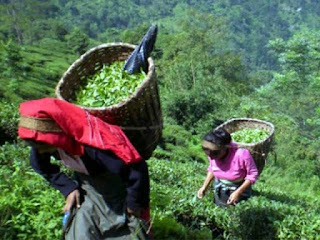Organic farming is a form of agriculture that relies on
sustainable techniques to enhance the natural fertility of a farm, including
crop rotation, companion planting, biological pest control, and
naturally-sourced fertilisers such as compost, manure, green manure, and bone
meal.
Pest-control measures such as mixed crops and fostering
natural insect predators, as well as naturally-sourced pesticides such as
pyrethrin, are employed, while it excludes or BIO strictly limits the use of
synthetic petrochemical fertilisers and pesticides, plant growth regulators
such as hormones, antibiotic use in livestock, genetically modified organisms;
human sewage sludge, and nano materials.
The agricultural approach emphasises sustainability, openness,
independence, health, and safety.
The conservation of natural resources and biodiversity is a
core principle of organic production. Three broad management practices
(prohibition/reduced use of chemical pesticides and inorganic fertilisers;
sympathetic management of non-cropped habitats; and preservation of mixed
farming) that are largely intrinsic (but not exclusive) to organic farming are
particularly beneficial for farmland wildlife.
In a research report, “Does organic farming benefit
biodiversity?”, using practices that attract or introduce beneficial insects,
provide habitat for birds and mammals, and provide conditions that increase
soil biotic diversity serve to supply vital ecological services to organic
production systems.
Advantages to certified organic operations that implement
these types of production practices include: decreased dependence on outside
fertility inputs; reduced pest management costs; more reliable sources of clean
water; and better pollination.
·
Nearly all non-crop, naturally occurring species
observed in comparative farm land practice studies show a preference for
organic farming both by abundance and diversity.
·
An average of 30 percent more species inhabits
organic farms. Birds, butterflies, soil microbes, beetles, earthworms, spiders,
vegetation, and mammals are particularly affected.
·
Lack of herbicides and pesticides improve
biodiversity fitness and population density. Many weed species attract
beneficial insects that improve soil qualities and forage on weed pests.
·
Soil-bound organisms often benefit because of
increased bacteria populations due to natural fertiliser such as manure, while
experiencing reduced intake of herbicides and pesticides.
·
Increased biodiversity, especially from
beneficial soil microbes and mycorrhizae have been proposed as an explanation
for the high yields experienced by some organic plots, especially in light of
the differences seen in a 21-year comparison of organic and control fields.
·
Biodiversity from organic farming provides
capital to humans. Species found in organic farms enhance sustainability by
reducing human input (e.g., fertilisers, pesticides).
Organic agricultural methods are internationally regulated
and legally enforced by many nations, based in large part on the standards set
by the International Federation of Organic Agriculture Movements (IFOAM), an
international umbrella organisation for organic farming organisations
established in 1972.




